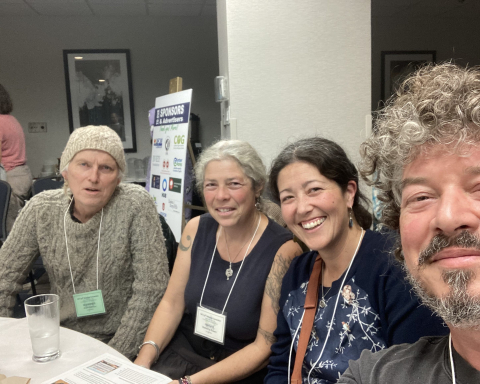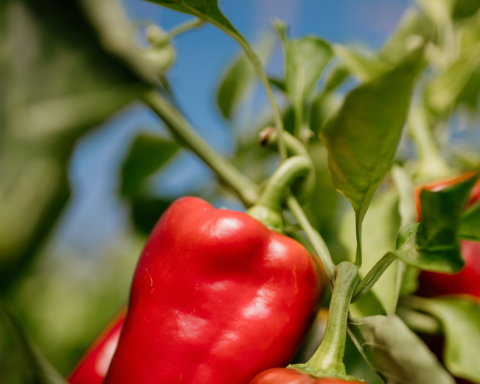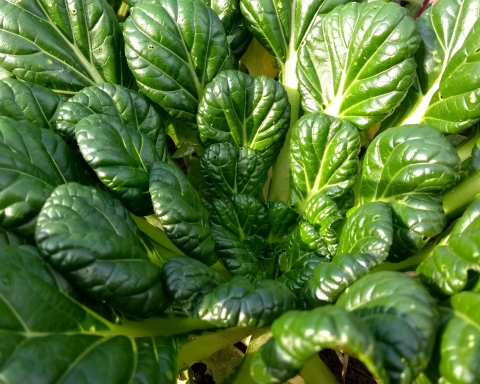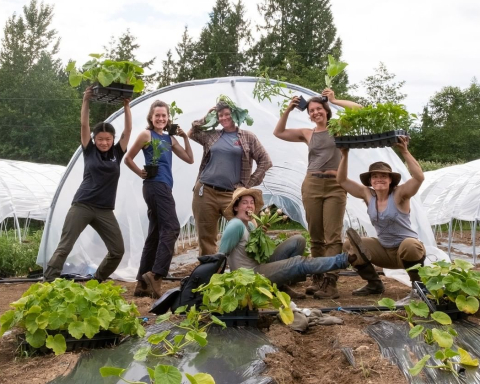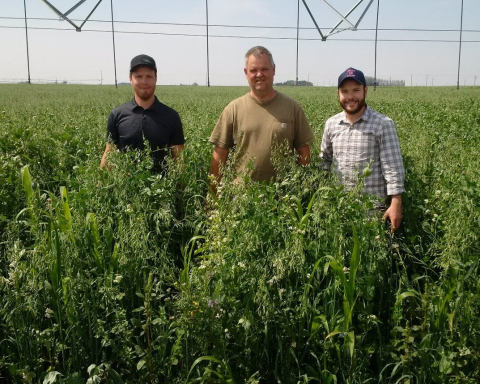Organic Federation of Canada
Canadian farmers are already experiencing serious negative impacts of climate change due to extreme weather events such as floods, droughts, forest fires, and ocean acidification—but resilient agriculture delivers ecological services and sets the path for food security amid climate change turmoil.
In alignment with what the Food and Agriculture Organization of the United Nations proposes in terms of climate-smart agriculture, the Canadian Organic Standards prescribe effective strategies to foster the emergence of a carbon-neutral economy in the food sector.
The Canadian Organic Standards include practices that contribute significantly to reducing our agricultural sector’s greenhouse gas emissions, sequestering atmospheric carbon in soils and increasing biodiversity, while encouraging the adoption of sustainable agricultural practices, increasing agricultural resilience to the effects of climate change (particularly flooding and drought) and increasing farm income.
Canada is considered to be the 6th largest organic market in the world, and organic sales are growing at an impressive rate ($8.1 B in 2020). Despite a steady increase in production, supply is not keeping up with demand, both domestically and internationally. This offers great opportunities for the future.
The Canadian Organic Standards, referenced by law, define ecological agriculture as the basis of the whole industry; the standards need to be maintained and updated. Under the Canada Organic Regime, the Standards Interpretation Committee harmonizes the certification process by providing independent guidance to the Canadian Food Inspection Agency (CFIA) on issues related to the standards.
Since 2017, the Government of Canada has drastically reduced its support for organic agriculture:
- The Canada Organic Office, created in 2009 by the CFIA to address regulatory issues, was dissolved in 2017.
- The Organic Value Chain Round Table, mandated to analyze the Canadian organic sector’s competitive position and improve its performance and profitability, was dissolved in 2019 by Agriculture and Agri-Food Canada (AAFC).
- The Standards Interpretation Committee, created by the CFIA in 2009 and funded by CFIA to provide independent guidance to the industry on issues related to the standards, will see its funding ended in 2023 (reduced by 54% in 21-22 and in 22-23).
- The Canadian Organic Standards are referenced in the Safe Food for Canadians Regulations. The Canadian General Standards Board, which owns the Standards, requires a mandatory review every five years. But the federal government has not budgeted for future revisions. AAFC clearly states that they will not fund any future review.
The organic industry needs a Canada Organic Program to increase the sustainability of Canadian agriculture, assure access to markets and continue to ensure competitiveness. Other jurisdictions have implemented such programs to support their respective organic industries. The USDA and EU fund the maintenance of their organic standards.1 The USDA funds the Organic Cost Share Certification Program which provides cost share assistance to producers and handlers, and has created the USDA Organic Integrity Database to promote the growth of agricultural ecological practices and prevent fraud. The European Commission has set a target of at least 25% of the EU’s agricultural land under organic farming and a significant increase in organic aquaculture by 2030. In Europe, many countries offer direct support to their organic producers with an annual subsidy per hectare, with the objective of encouraging the maintenance of organic management practices over the long term.
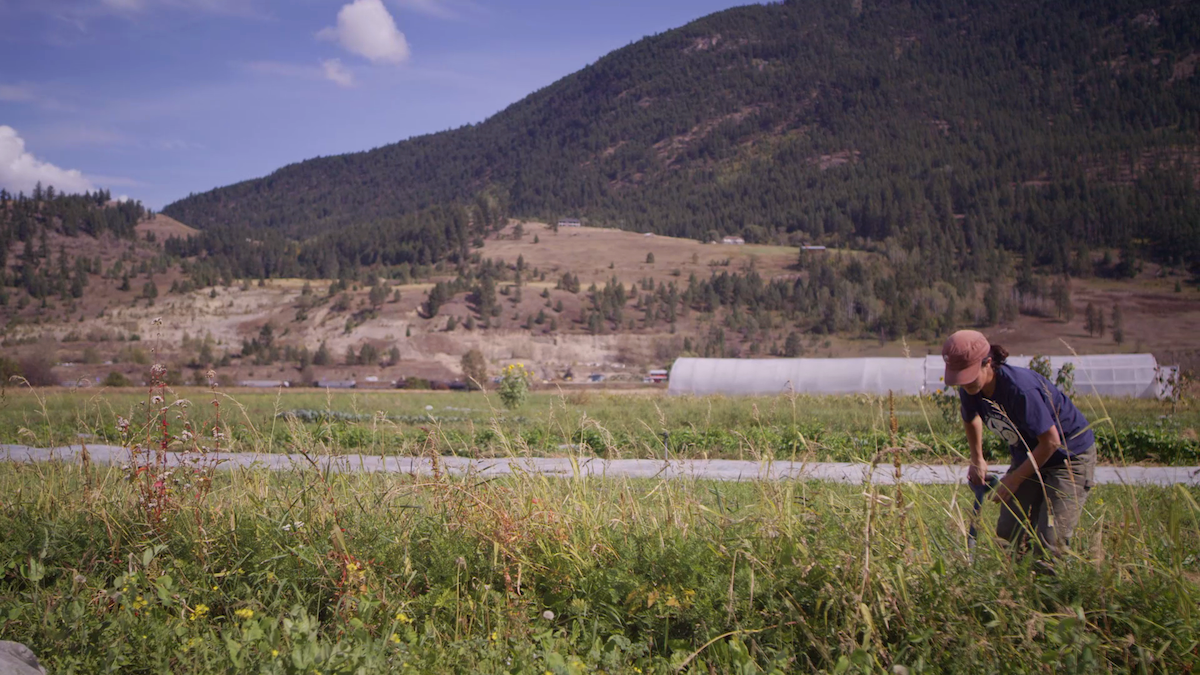
What a Canada Organic Program will Accomplish
Different support measures are needed to increase Canadian agriculture’s sustainability, assure access to organic markets, and continue to ensure the competitiveness of our organic industry through a Canada Organic Program. An effective Canada Organic Program should include support measures addressing four elements:
- Market access through a sound regulatory framework
- Growth in capacity
- Increased funding for organic research and knowledge transfer
- Recognition of the organic sector’s contribution to sustainability
- Market Access Through A Sound Regulatory Framework
The Canadian Organic Standards are owned by the Canadian General Standards Board (CGSB) and establish the requirements that agricultural producers and food processors must meet to ensure the legitimacy of Canadian organic products. This allows Canadian businesses to access markets, both in Canada and internationally, by ensuring that their organic claims are true. The Standards, put in place by the Safe Food for Canadians Regulation are thus the basis of the entire regulatory and certification system surrounding organic products, both for products sold outside their province of origin and for imported and exported products.
The CGSB Policy and Procedures Manual states that every standard shall be reviewed every five years. An unrevised standard is no longer relevant and a standard that has been published for more than five years cannot be amended (CGSB Manual clause 6.11.9). The CGSB may withdraw a standard if there are insufficient funds to update it (6.12.1), or if maintenance of the standard no longer meets CGSB requirements (6.12.2.3).
Canada establishes organic equivalency arrangements with other countries only if the signatories determine that the two regulatory systems involved, including their standards, assure that equivalent principles and outcomes are achieved in both jurisdictions.2 The Canadian organic industry cannot remain competitive if the Standards are not reviewed periodically to remain comparable to the standards of other countries, and equivalency agreements could be withdrawn. This would compromise access to international markets for Canadian organic products.
Funding for Five-Year Reviews of the Standards
The Canadian Organic Standards have been reviewed twice, once in 2015 and a second time in 2020.
For the first review in 2015, the Assurance Systems Stream under the AgriMarketing Program through AAFC contributed $297,414 to the Organic Federation of Canada (OFC) to cover part of the cost. Fundraising to industry stakeholders led by the OFC contributed $83,490 in cash, while stakeholders’ in-kind contributions amounted to a total of $16,062. The costs incurred by the CGSB were covered by the Standards Council of Canada.
For the 2020 Standards review process, AAFC’s Canadian Agricultural Adaptation Program, a program that has since been terminated, funded a total of $292,554 to the OFC. Industry cash contributions amounted to $59,000 and in-kind contributions were $39,000. AAFC also covered CGSB costs, a budget of over $200,000.
Government funding of the Standards review through ad hoc programs is not viable in the long-term. In 2022, the federal government is asking industry to pay for the costs of future Standards review work itself. However, industry funding of the Standards review is seen as a threat to the independence and integrity of the process. Also, there is no funding mechanism, such as a check-off program, that allows all operators and industry stakeholders to contribute equitably to the funding of the review work.
The USDA and EU publicly fund the review of their organic standards without any financial contributions from industry. If the Canadian organic sector were to attempt to cover the cost of reviewing the Canadian Organic Standards, Canada will be at a competitive disadvantage with stakeholders in competing countries.
Considering all these factors, the Canadian government needs to implement a Canada Organic Program that assures the independence of the review process by instituting permanent government funding for the mandatory five-year reviews of the Standards imposed by CGSB.
The Regulatory Role of the Standards Interpretation Committee
The Standards Interpretation Committee harmonizes the certification process by providing clarification to the CFIA when certified operators and Certification Bodies ask questions about the standards.
The Standards Interpretation Committee must be an independent, credible and impartial entity. The Committee must be funded by the CFIA, not by industry. Rather than abolishing the funding provided to the Standards Interpretation Committee since 2009, the Canadian government should maintain and even increase funding. This support is important to harmonize the certification process, maintain its independence, and accelerate the work of the Committee so questions can be answered in a timely fashion.
A Canada Organic Regime Integrity Database
Listing the certified organic operators under the Canada Organic Regime on a national database comparable to the USDA Organic Integrity Database will promote the growth of agricultural ecological practices and prevent fraud. This can only be accomplished by government.
Growth in Capacity
The government of Canada invests in organic businesses through various programs that are not specifically targeted towards organic production and processing. However, businesses producing organic products may have specific needs. Investing in organic processing and distribution capacity is essential to guarantee the supply to meet a growing demand for organic products, both in Canada and internationally.
Also, AAFC’s AgriMarketing Program provides funds to facilitate market connections between farmers and buyers and increase international market development. This type of funding needs to be increased through the Canada Organic Program to focus on organic market connections and development.
Increased Funding for Research and Knowledge Transfer
Organic agriculture should be recognized as a driving force in developing agricultural practices designed to conserve soil, water, and biodiversity. To support the adoption of such practices by the greater farming community, the government of Canada needs to aim long-term resilience of agroecosystems to climate change and to share the risk between farm businesses and society. This involves substantial support for research and knowledge transfer in organic practices.
Offering more government funding for research that seeks a greater understanding of agroecosystems, looks to develop alternatives to fossil fuel-based inputs, and increases on-farm technical assistance for organic practices, through a Canada Organic Program, is thus more than justified.
Recognition of the Organic Sector’s Contribution to Sustainability
The European Commission’s “Farm to Fork” strategy for a fair, healthy, and environmentally friendly food system aims to allocate at least 25% of EU farmland to organic farming by 2030. To achieve this, an action plan includes direct support for organic production, on the basis of an annual payment per hectare, to encourage the maintenance of practices associated with organic farming, ensuring their implementation over the long term. This type of measure applies significant leverage on the rate of conversion to organic agriculture. Very often, the payments per hectare are justified by the reward for positive externalities and partly financed by the deployment of taxes on pesticides.
A Canada Organic Program needs to include the recognition of, and financial compensation for, ecological goods and services and health and societal benefits associated with organic farm management practices.
In North America, although there is more support focused on investment assistance and relatively less action in favour of environmental payments, the USDA funds the Organic Cost Share Certification Program, which provides cost share assistance to producers and handlers of agricultural products who are obtaining or renewing their certification. Certified operations may be reimbursed for up to 50% of their certification costs paid during the program year. Because this program is based on recurrent assistance, not just support for transitional growers, it supports the practice of keeping land certified for years to come.
In order for Canadian organic businesses to remain competitive, a Canada Organic Program needs to implement a certification cost-share program to organic operators, offering, at minimum, the same benefits as those in the equivalent Farm Bill program.
Towards an Organic Future
In all countries with a structured organic sector, the budget devoted directly or indirectly to the development of organic agriculture is increasing. In general, assistance programs in favour of maintaining good practices are multiplying to sustain a form of agriculture that meets the challenges of sustainable development and climate change.
A Canada Organic Program is a must: organic agriculture maintains soil health, prevents climate change and promotes biodiversity. This is the responsibility of our federal government as this affects organic consumers, processors, and the thousands of farmers who grow organic food and feed.
Feature image: Arzeena Hamir cleaning Annie Jackson beans. Credit: Thomas Buchan.
References 1. Union des producteurs agricoles (2021). Benchmarking of support measures for organic farming in Quebec to other jurisdictions. upa.qc.ca/wp-content/uploads/filebase/Benchmarking_support_measures_organic_farming_Quebec_to_other_jurisdictions_2021-04.pdf 2. Organic equivalency arrangements with other countries (CFIA, 2021) inspection.canada.ca/organic-products/equivalence-arrangements/eng/1311987562418/1311987760268



